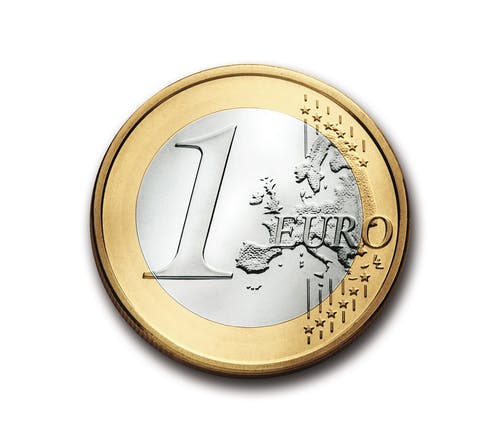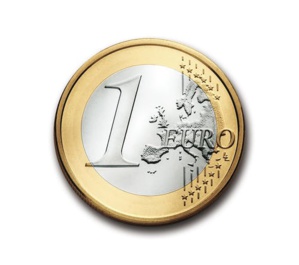The vice-president of the European Central bank, Luis de Guindos thinks that the low rates are acting like “a boon for banks” whereby reading the debate grounds about if the “lenders should be compensated”.
For a long time, banks have been complaining about the negative rates which seems to be weighing on their profits, besides injuring the European Central Bank’s efforts to slash down “borrowing costs” while policymakers are expected to meet in the coming week for discussing “possible compensation for lenders”.
In de Guindos’ words:
“Negative rates have been behind the recovery of ... the European economy in the recent past and in that sense, it has been a helping hand in the profitability of banks”.
Furthermore, he also added that the meet should also look into “more structural issues” such as “a high stock of non-performing assets, excess capacity and high costs appeared to be the main reason for weak banking sector profits”, reported Reuters.
Many policymakers do not support the “tiered deposit rate”, the proposal of which formed part of discussions before it was “dismissed several years ago”. According to Reuters:
“Banking profitability is exceptionally low in the euro zone and de Guindos said returns will fall this year, recovering only slowly in the next two years.
“The combined return on equity (ROE) of euro zone banks will fall below 6% in 2008 and rise above 6% percent again only in 2021, a level that is still considered low given the cost of capital and investor expectations”.
Talking about “stability risk” affecting the bloc, de Guindos noted the bubbles of real-estate, “no-deal Brexit”, coupled with high government debt particularly seen in Italy. While de Guindos added:
“The message is very, very clear: when tensions between the Italian government and (European) Commission come down, spreads narrow. If you have increasing tensions, you immediately have a widening of the spreads.”
“The lesson is quite evident: it’s very important to respect fiscal rules”.
In fact, the ECB also outlined risks in a “biannual Stability Report” which stated that “residential property” sector showed “mild overvaluation” signs. The report further stated:
“The ECB is monitoring property market developments too and may top up capital-based national macroprudential measures if needed”.
Even though the bloc seem to be prepared well to face Brexit, in case of a “no-deal Brexit” would hamper economic growth and give in to “sharp market swings”. According to ECB:
“Combined with an impact via trade channels, potential financial market shocks related to a no-deal scenario pose a material downside risk to euro area GDP growth”.
References:
reuters.com
For a long time, banks have been complaining about the negative rates which seems to be weighing on their profits, besides injuring the European Central Bank’s efforts to slash down “borrowing costs” while policymakers are expected to meet in the coming week for discussing “possible compensation for lenders”.
In de Guindos’ words:
“Negative rates have been behind the recovery of ... the European economy in the recent past and in that sense, it has been a helping hand in the profitability of banks”.
Furthermore, he also added that the meet should also look into “more structural issues” such as “a high stock of non-performing assets, excess capacity and high costs appeared to be the main reason for weak banking sector profits”, reported Reuters.
Many policymakers do not support the “tiered deposit rate”, the proposal of which formed part of discussions before it was “dismissed several years ago”. According to Reuters:
“Banking profitability is exceptionally low in the euro zone and de Guindos said returns will fall this year, recovering only slowly in the next two years.
“The combined return on equity (ROE) of euro zone banks will fall below 6% in 2008 and rise above 6% percent again only in 2021, a level that is still considered low given the cost of capital and investor expectations”.
Talking about “stability risk” affecting the bloc, de Guindos noted the bubbles of real-estate, “no-deal Brexit”, coupled with high government debt particularly seen in Italy. While de Guindos added:
“The message is very, very clear: when tensions between the Italian government and (European) Commission come down, spreads narrow. If you have increasing tensions, you immediately have a widening of the spreads.”
“The lesson is quite evident: it’s very important to respect fiscal rules”.
In fact, the ECB also outlined risks in a “biannual Stability Report” which stated that “residential property” sector showed “mild overvaluation” signs. The report further stated:
“The ECB is monitoring property market developments too and may top up capital-based national macroprudential measures if needed”.
Even though the bloc seem to be prepared well to face Brexit, in case of a “no-deal Brexit” would hamper economic growth and give in to “sharp market swings”. According to ECB:
“Combined with an impact via trade channels, potential financial market shocks related to a no-deal scenario pose a material downside risk to euro area GDP growth”.
References:
reuters.com






